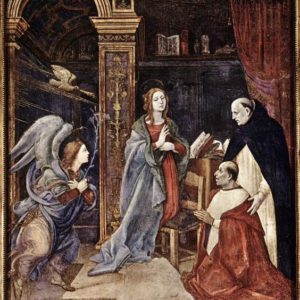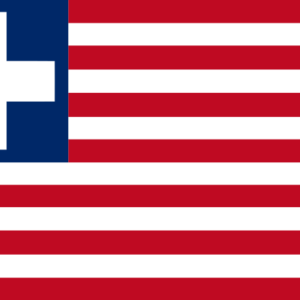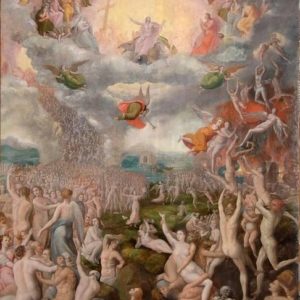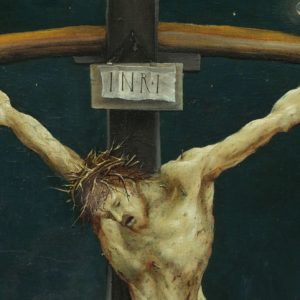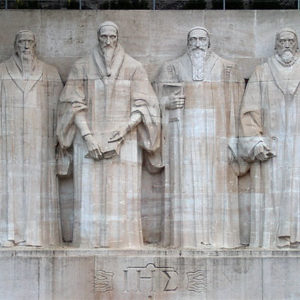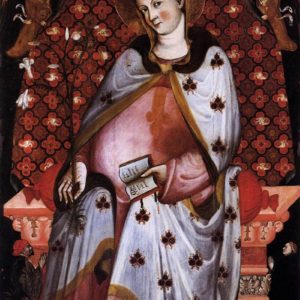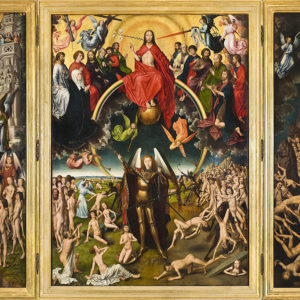Protestants tend to view Baptism as a symbol that doesn’t actually do anything, whereas Catholics view Baptism as a Sacrament that truly saves us. Strangely, both sides are right… it just depends upon which Baptisms we’re referring to.
Tag: apologetics
The Immaculate Conception: A Gift for You
One of the tragedies of the Protestant Reformation is that it resulted in a lot of Protestants squeamish about talking about the Virgin Mary, and a lot of Catholics squeamish about talking about grace and predestination (in both cases, out of a fear of the other side’s perceived excesses). In reality, if you want to know what God’s predestination looks like, look to the Virgin Mary. And you can’t understand Mary without understanding predestination.
Can We Be Americans AND Christians?
A recent Facebook commenter claimed that “To be a Christian American, you must believe in the separation of Church and State. The Will of God has no place in superseding a rule of law. By living a Christian Life and not judging others, we show our ability to follow in the footsteps of Christ.” Here are five reasons that’s a dangerous position to hold as either a Christian or an American.
The World is Ending: The Hidden Message of Advent
The world is ending this weekend. Is that good news or bad news?
5 Radical Lessons Christ Reveals About the Kingdom of God
The idea of the “Kingdom of God” is absolutely central to the Christian Gospel. The first words out of the mouth of Jesus in St. Mark’s Gospel are “The time is fulfilled, and the kingdom of God is at hand; repent, and believe in the gospel” (Mark 1:15). St. Matthew says that Jesus “went about all Galilee, teaching in their synagogues and preaching the gospel of the kingdom and healing every disease and every infirmity among the people” (Mt. 4:23). And we pray for the coming of this Kingdom every time that we pray the Lord’s Prayer. So what do we mean by the “Kingdom of God,” and how should it impact our approach to the Church, to civil society, and to our own responsibilities?
A House of Prayer for All People
Why do Catholics call their Church the “Catholic” Church? Why not just call it the Christian Church? Is the Catholicity of the Church important? Is it Biblical? What does it even mean to say that the Church is “Catholic”?
Reformation Day Ironies, 500th Anniversary Edition
This year, in commemoration of the 500th anniversary of the Reformation, I’ve decided to do another round of “Reformation Day Ironies.” This year’s theme is “Luther against the Reformation,” looking at the various ways that Martin Luther spoke against the Reformation he helped to spark, including what he had to say on the papacy, teaching authority, and schism.
What About Abortion in Cases of the Life of the Mother?
Do embryos and fetuses count as human “persons”? And why can’t we abort in those cases in which NOT aborting means that both the mother and the baby will die?
Can Catholics Believe in Karma?
Can a Catholic believe in karma?
Did Vatican II Change Church Teaching On the Church?
Chances are, if you’ve done any reading about the Catholic Church’s vision of “the Church,” you’ve probably come across the claim that everything changed at Vatican II. Prior to Vatican II, as the story goes, the Catholic Church thought that only she was “the Church;” after Vatican II, she recognized that the Orthodox and Protestants (and perhaps even non-Christians!) also form part of the Church. But is it true?

